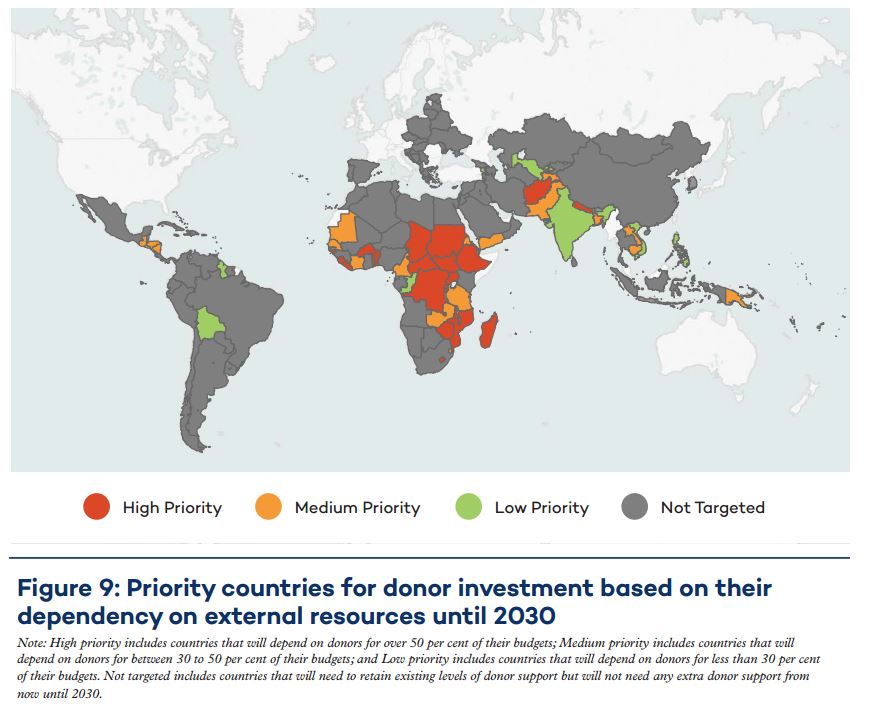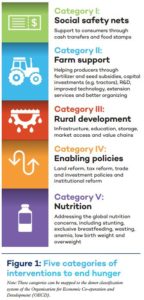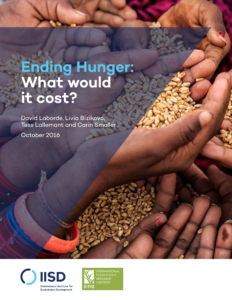Ending Hunger: What would it cost?
In October 2016, the report titled, “Ending Hunger: What would it cost?” was launched by the International Institute for Sustainable Development (IISD) and the International Food Policy Research Institute (IFPRI). According to the study, it will cost USD 11 billion a year of additional investments until 2030 to end hunger. This means a 40 percent increase over current spending of USD 8.6 billion on global hunger programs–based on the traditional share of donor spending in developing countries.

 In October 2016, the report titled, “Ending Hunger: What would it cost?” was launched by the International Institute for Sustainable Development (IISD) and the International Food Policy Research Institute (IFPRI). According to the study, it will cost USD 11 billion a year of additional investments until 2030 to end hunger. This means a 40 percent increase over current spending of USD 8.6 billion on global hunger programs–based on the traditional share of donor spending in developing countries. The benefits of this increased spending go beyond just ending hunger, there will be better educational outcomes and a healthier workforce which will spur economic development.
In October 2016, the report titled, “Ending Hunger: What would it cost?” was launched by the International Institute for Sustainable Development (IISD) and the International Food Policy Research Institute (IFPRI). According to the study, it will cost USD 11 billion a year of additional investments until 2030 to end hunger. This means a 40 percent increase over current spending of USD 8.6 billion on global hunger programs–based on the traditional share of donor spending in developing countries. The benefits of this increased spending go beyond just ending hunger, there will be better educational outcomes and a healthier workforce which will spur economic development.
Download “Ending Hunger: What would it cost?” // View the blog “Can We End Hunger By 2030?”
The model uses the Food and Agricultural Organization’s definition of hunger, which determines that a country has ended hunger when more than 95 per cent of the population is able to consume a sufficient number of calories. It identifies 5 areas that impact both food consumption and production capacities of hungry households, however, focuses only on increased spending in three of the five categories: social safety nets, farm support and rural development. This is in line with the USD 8.6 billion spent annually on aid. In addition, costing the impacts of legal and policy is considered complex and costing nutrition interventions is limited by data.
The study was funded by the Bill & Melinda Gates Foundation via the New Venture Fund.
